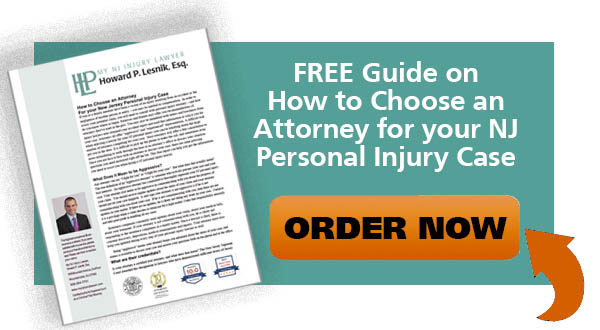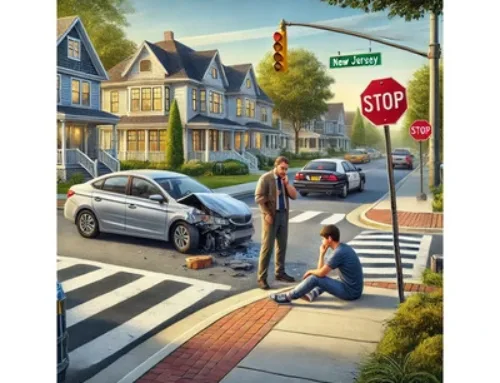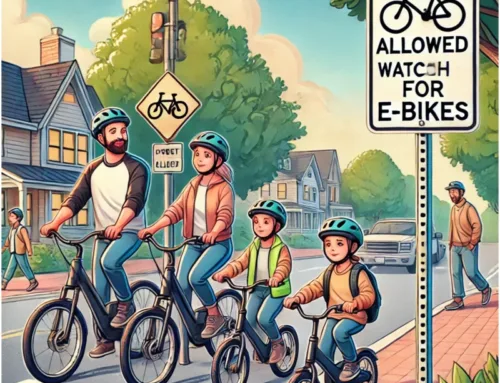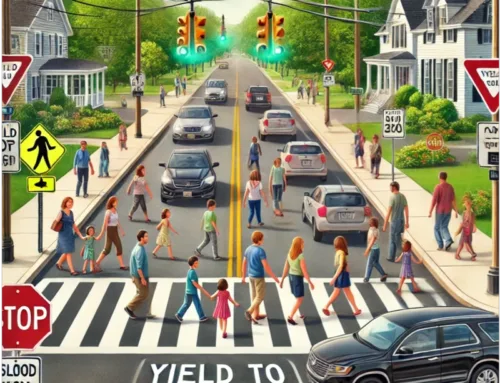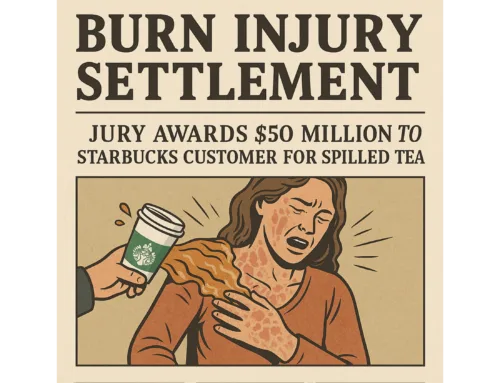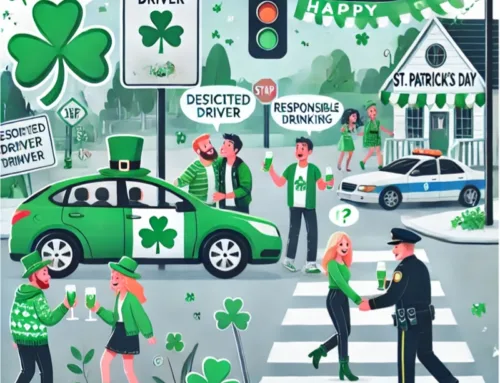Nearly five percent of all emergency room patients in the United States seek treatment for injuries suffered in a slip and fall accident. When one of these accidents takes place on property owned and maintained by some other party, the person who was injured may have the ability to file suit for damages resulting from their injuries, if the owner or occupier of the property was negligent in some fashion. Understanding the circumstances under which a property owner is considered negligent in slip and fall accidents and other premises liability matters is critical both for landowners and for individuals who find themselves injured after a slip and fall or other accident.
Generally speaking, whenever a case for negligence is being argued in a legal context, four points must be demonstrated to the satisfaction of the court.
- The person accused of negligence owed a duty of care to the injured party, or to a class of people in general to which the injured party belonged.
- The person accused of negligence breached that duty of care.
- This failure to fulfill their duty of care was the direct and foreseeable cause (in legal terms, the “proximate cause”) of the accident that followed.
- The accident resulted in the harm for which the plaintiff is seeking compensation.
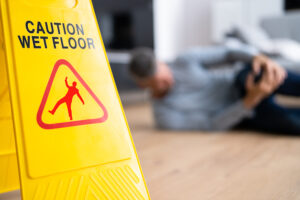 In premises liability cases, including slip and fall accidents, the landowner or other party responsible for maintaining the condition of the property owes a duty of care toward visitors to that property – although the extent and requirements of that duty of care are dependent on the classification of visitor entering the property, determined by the relationship between the visitor and the property owner. The law recognizes three general categories of visitor, each with its own set of duties owed by the property owner.
In premises liability cases, including slip and fall accidents, the landowner or other party responsible for maintaining the condition of the property owes a duty of care toward visitors to that property – although the extent and requirements of that duty of care are dependent on the classification of visitor entering the property, determined by the relationship between the visitor and the property owner. The law recognizes three general categories of visitor, each with its own set of duties owed by the property owner.
- As the term suggests, this is a person whose presence on the property is actively invited by the property owner. This is the type of visitor to which property owners owe the highest level of care. A property owner has a duty to invitees to maintain their property in such a way that, through the exercise of ordinary care, they do not create hazardous conditions during the course of normal operations conducted on the property; they conduct regular (often scheduled) inspections of the property to discover hazards and make appropriate repairs; and they warn all invitees of any known hazards or dangerous conditions that may not be obvious to a visitor.
- Business Visitor: This type of invitee is a person who is invited onto the property for a business purpose. This includes customers to a business (whether or not they make an actual purchase), employees, and tenants of a rental property. The landowner owes these invitees an absolute duty to repair known hazards and to make regular inspections to ensure the absence of hazards.
- Public Invitation: This type of invitee is a member of the public, or a segment of the public, that is intended to make use of public spaces without a particular commercial purpose. This includes visitors to public parks, hospitals, shopping malls, condo complexes, and so on.
- This type of visitor is present on the property with the explicit or implied permission of the landowner. A social guest of a homeowner is categorized as a licensee. The duty of care owed to licensees by property owners is not as stringent as that owed to invitees. The landowner still has a duty to warn a licensee about or repair any hazards they know or should have known existed and recognized as dangerous, if it creates an unreasonable risk of harm and if the licensee is unlikely to discover the danger until it is too late to avoid harm.
- This category describes a person who has no right, and who has not been granted the privilege, of entering the property. Unsurprisingly, the property owner owes very little, if any, duty of care toward trespassers, other than a duty to refrain from the wanton infliction of injury upon trespassers who do not intend to commit crimes.
- Undiscovered Trespassers. These are individuals who trespass without the property owner becoming aware of their presence on the property; no duty of care is owed to these trespassers.
- Discovered Trespassers. The property owner has a duty to warn any trespassers they discover of any artificial hazardous conditions that have the reasonably foreseeable potential to result in serious injury or death, or to remedy such conditions. Also, in the course of operating normal activities on the property, the landowner must exercise reasonable care.
- Children as Trespassers. Because children are often attracted to objects that may create dangerous conditions and may not be fully capable of understanding the risk these objects pose, landowners have an addition duty to take reasonable care to avoid creating artificial conditions that may pose a foreseeable risk of harm – an “attractive nuisance.” Examples of artificial conditions that may pose harm to children include swimming pools without fences, abandoned vehicles or large appliances, and similar hazards. If the landowner should have been aware of the potential danger of this artificial condition, and the expense of remedying the danger is minimal (or is required by statute), the landowner may be deemed negligent for failing to do so.
In most cases wherein a person suffers a slip and fall injury on the premises of a store or business, they are considered an invitee and thus owed the highest duty of care by the parties responsible for maintaining the property. Referring to the four points required to prove negligence, the next step is to determine whether the property owner breached their duty of care. Did they have actual or constructive knowledge (knew or should have known) about a dangerous condition? Did they fail to warn of known hazards? Did they fail to inspect the premises at regular intervals to discover new hazards and take appropriate corrective action? For instance, if a bottle of laundry detergent in a grocery store aisle is knocked over and spills, this creates a slipping hazard. If a customer who sees the spill reports it to an employee, the store has actual knowledge of the hazard. Alternately, if no one reports the spill, but an hour passes with no employee walking by and noticing the spill, this might be considered a failure to make regular inspections of the premises to ensure safety. Similarly, if an area of the store with refrigerated displays lacks slip-resistant mats to prevent sliding on condensation from the cold cases, this might be considered “constructive knowledge” of a hazard – the management should have known that water would collect in front of the refrigerated display and create a slipping hazard.
Many of these points rely on seemingly subjective terms like “reasonable care” and “unreasonable risk” – who decides what is “reasonable” in these cases? Generally, if your case goes to trial, the jury decides what reasonableness entails, but not completely on a whim. Experienced premises liability attorneys understand the way courts measure these confusing and seemingly ambiguous terms in practice, and can explain to you what you can expect when moving forward with a lawsuit to seek compensation for your injuries after a slip and fall accident.
Contact MyNJInjuryLawyer
If you or a loved one suffered an injury in an accident in NJ, you should contact an attorney familiar with handling these claims. An experienced NJ Injury Lawyer will know how to obtain medical records, videos, photographs, experts, locate witnesses and contact the insurance company so you can make a claim for your injuries.
My NJ Injury Lawyer Howard P. Lesnik, Esq. offers complimentary strategy sessions to address any issue or questions you may have for your injury claim in NJ.
Please contact NJ Injury Lawyer Howard Lesnik, Esq., immediately if you were involved in an accident. I personally handle NJ personal injury cases on a regular basis. Please contact me now by email, by phoning 908.264.7701, or by completing the form to the right to schedule your complimentary 30-minute strategy session.


